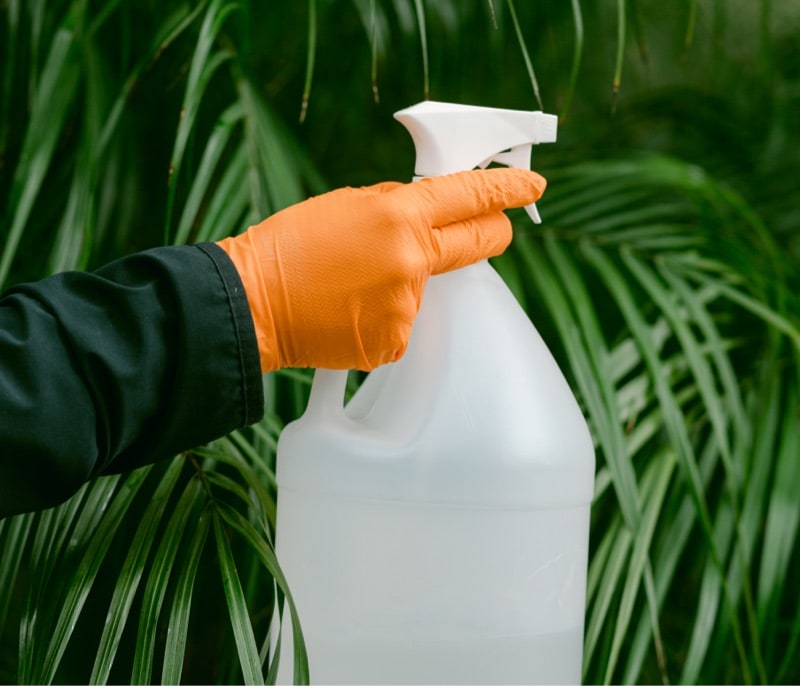Our Faqs
Do you guarantee your work?
Yes,all of our work comes with a full warranty.
Are your materials safe?
Yes,all of our work comes with a full warranty.
Do I need monthly service for my home?
No, a thorough twice a year service (Spring/Fall) that coincides with peak levels of pest activity is sufficient.
How are pests getting inside my house?
There are often many areas around the exterior of the home that can either be a pest attractant or an area conducive to pests. These may include vents, windows, eaves, debris around the home, landscaping issues, etc. Before applying treatment, HLA Technicians do an inspection and walk-around of your house to help identify any problem areas. They note any problems on the inspection form, and make suggestions of what can be done to reduce pest pressure.
How will your products affect my pets?
We are pet-lovers too. All of the products that in our programs are not harmful to pets as long as you follow our recommendations. Keep in mind that some treatments require time to dry before pets can be allowed back into the treated area. Every situation is different and we will give you specific information on the product application we used and how to keep your pets safe.
Can I spray and get rid of my pest problem?
-
Inexperienced applications of over-the-counter pest control products are usually ineffective and can also be unsafe for pets, children and adults if used improperly. Also, most pests return unless you take steps to prevent them. In as little as 60 days, new infestations can develop.
-
The only effective way to eliminate and prevent new infestations is to use a reputable pest prevention company plan, such as the programs provided by HLA.
Is this safe for my family and pets?
Our first priority is the safety of our customers, as well as being good stewards of the environment. This means that we take the time to develop a customized pest control program and use strategic targeting, which enables us to use the least amount of pest control product while providing superior results.
My neighbor had a termite treatment done on their home.Do I have anything to be concerned about?
You should have your home inspected to be sure you do not have a termite infestation in your home. Termites are subterranean (they have colonies in the ground) and tend to be widespread in some areas but not in others. If your neighbor has termites it means they are present in the soil where you live and you have a good reason to be concerned.
How do you get rid of termites?
There are several different techniques that we use to eliminate termites from a structure. It will be necessary to inspect the house first to determine the best method for your particular situation.
Can I take care of my pest problems myself?
In some instances, yes. Retail products that are available, if used properly, can control pest issues. In other cases, a professional pest control operator, who will be in possession of equipment and materials that are not available to the average person, will be better suited to address your needs.
Do I have to leave my home when you provide service?
In most situations, it will not be necessary to leave your home, but we will ask you to leave the immediate area where your pest technician is working. Utmost care is used in the application and choice of pest control products. If it becomes necessary for you to be out of your home during a treatment, this will be arranged in advance for your convenience.
How do I keep mice out of my home?
Cockroachesare a leading trigger of allergies and asthma attacks. The pests’ saliva, droppings and decomposing bodies contain allergen proteins known to trigger allergies and increase the severity of asthma symptoms, especially in children.
How can professional pest control help alleviate asthma?
Proper pest control will help prevent or remove pests that can trigger asthma. Apest management professional(often referred to as an exterminator) can inspect a home for these pests, treat and eliminate them, and provide homeowners with recommendations to prevent reinfestation.
What is the connection between pests and asthma in children?
Cockroaches are a leading trigger of allergies and asthma attacks. The pests’ saliva, droppings, and decomposing bodies contain allergen proteins known to trigger allergies and increase the severity of asthma symptoms, especially in children.

